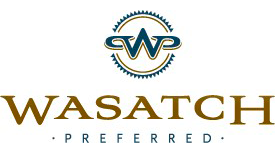Tens of thousands of forklift-related injuries occur every year in U.S. workplaces, most of them preventable.
Employees may be injured when a lift falls between loading docks and an unsecured trailer, and others are injured or even killed when forklifts are accidentally driven off loading docks.
According to Fed Osha, some of the most common types of forklift accidents are:
- Forklift rollovers
- Human impacts
- Falling loads
- Truck falling off a dock or trailer
- Crushed by a forklift
Training
Common mistakes that cause forklift accidents include improper backing techniques, turning and failure to warn others about a forklift usage nearby.
Proper training and monitoring are crucial to avoiding forklift accidents and injuries. Employees need adequate training under close supervision in proper operational procedures and safety regulations.
Such training should include written operating procedures and safety regs, as well as the inspection guidelines and maintenance schedule for the machinery.
Forklift operating procedures should be clearly written and monitored. They should be posted where everyone can see them and include the obvious; everything from not giving rides to the need for good communication between those in the work area when the equipment is in use.
Inspection and maintenance
Furthermore, equipment requires continuous inspection and maintenance.
An operator should inspect the equipment every day before using the forklift, ensuring that the brakes and steering are in good working order. They should also check fluid levels and visually inspect for leaks beneath the equipment.
The final step in ensuring safe forklift operations is to make sure all machinery is kept in good maintenance.
If a forklift begins to show its age, it should be replaced. No employee should be forced to use equipment that is clearly unsafe or has not properly been maintained.
You may not think that a forklift that hasn’t undergone regular maintenance is dangerous: think again:
- Brake failure can lead to an out-of-control forklift.
- Broken tines can drop heavy loads.
- Bald tires are more likely to skid, and
- Dirty machines are more likely to contribute to fires.
The takeaway
Forklift safety is serious business. They are unwieldy, heavy machines with lots of blind spots. In a busy workplace, dangers abound.
So do the right thing if you have forklifts on your premises. Train your workers and keep the machines in good working order to avoid deadly consequences.
